Before Treatment:
Abdijabar, a 3-year-old boy from Garabis, was brought to Acrif’s Mobile Team by his worried mother. Upon arrival, Abdijabar was visibly frail and emaciated, with a marked loss of muscle mass and bilateral pitting edema. The initial screening revealed a weight of 16 kg and a height of 96cm, indicating a weight-for-height and its z-score its -4 cut-off, confirming severe acute malnutrition (SAM). His mid-upper arm circumference (MUAC) measured a dangerously low 11.0 cm. and he had other symptoms of malnutrition include: reduced appetite, lack of interest in food and drink, feeling tired all the time, feeling weaker, getting ill often and taking a long time to recover, wounds taking a long time to heal, poor concentration feeling cold most of the time. Acrif’s Mobile Team promptly registered Abdijabar, noting his demographic details and his mother’s contact information, and began the necessary nutrition and Clinical Assessment to determine the full extent of his condition.
Treatment Plan:
Acrif’s Mobile Team developed a comprehensive treatment plan for Abdijabar, focusing initially on stabilizing his condition. Nutritional rehabilitation was initiated using Ready-to-Use Therapeutic Food (RUTF), and Abdijabar was placed on a therapeutic feeding program. Simultaneously, he received routine medications (vitamin A, albendazole and amoxicillin) The team provided Abdijabar’s mother with extensive Counseling and education on proper feeding practices, hygiene, and the importance of follow-up care. Consent was obtained for all medical interventions, ensuring that Abdijabar’s mother understood the treatment plan and her critical role in his recovery.
After Treatment:
Over the course of several weeks, Abdijabar’s condition began to improve. Regular follow-up visits showed a steady increase in his weight and become 14kg and MUAC, which eventually rose to 11.5 cm. and his energy levels improved, allowing him to engage in normal activities for a child of his age. Acrif’s Mobile Team monitored his progress closely, adjusting the treatment plan as needed based on his response. Abdijabar’s mother diligently followed the feeding and care instructions, which contributed significantly to his recovery. When Abdijabar’s condition stabilized, the team referred him to TSFP program to continue his treatment ensure continuity of care and prevent relapse. Through this integrated approach, Abdijabar transitioned from severe acute malnutrition to a much healthier state, demonstrating the effectiveness of Acrif’s Mobile Team’s structured treatment and the vital role of caregiver education in sustaining long-term nutritional health.

